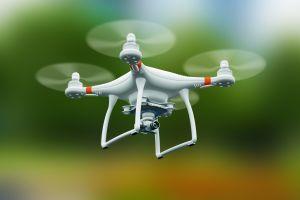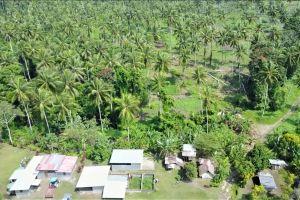Julien Bouteloup Strikes Again, This Time With FlyingCarpet
FlyingCarpet is a UK-based startup led by Julien Bouteloup, who wowed the world by developing a device called IDbox, which would enable people to create a unique identification and also personally access grid electricity via an analog phone in Papua New Guinea.

Now he’s taken it a step further, creating a drone powered by artificial intelligence and charged with renewable energy, based on blockchain, to help farmers in emerging economies.

Bouteloup explains, “Namaliu Jr., who owns the coconut plantation, couldn’t believe that the drone could capture a video and show him how many coconuts there were in his entire plantation. He told me it usually takes his workers many hardworking days to do this.”
The drone helped Namaliu Jr. count the number of coconuts growing on his 100-hectare plantation, having collected this data using high-definition cameras.
Namaliu Jr. said, “There are huge advantages to being able to count the number of coconuts this way. You can better understand and estimate the return on your crop harvesting, as well as prevent coconuts from being stolen.”

Blockchain is critical to this project, Bouteloup says, because it decentralizes the access to this data, rather than have someone control all the information.
“Blockchain also incentivizes participants to develop and provide services for the network. If you have a single entity such as a drone manufacturer running a network of drones, they have full control over the costs of accessing services. Our network is open and allows anyone to contribute or participate, and prices are determined by fair supply and demand,” he explained.
The technology also offers security, because “If you have all your drones operating within a centralized network protocol, someone could corrupt the data or use the drones for criminal activity. If you decentralize this structure, this can be avoided entirely.”
A native utility token is also announced: a way to pay villages or owners of the drones. People can also sell their data, and in his words: “Ultimately, this all about incentivisation. It is possible that incentives through selling data could surpass returns from selling coconuts!”
Now, the company will be conducting a range of PoCs (proof of concept) globally and working with different governments, non-governmental organizations, and corporate partners to help implement these services.




